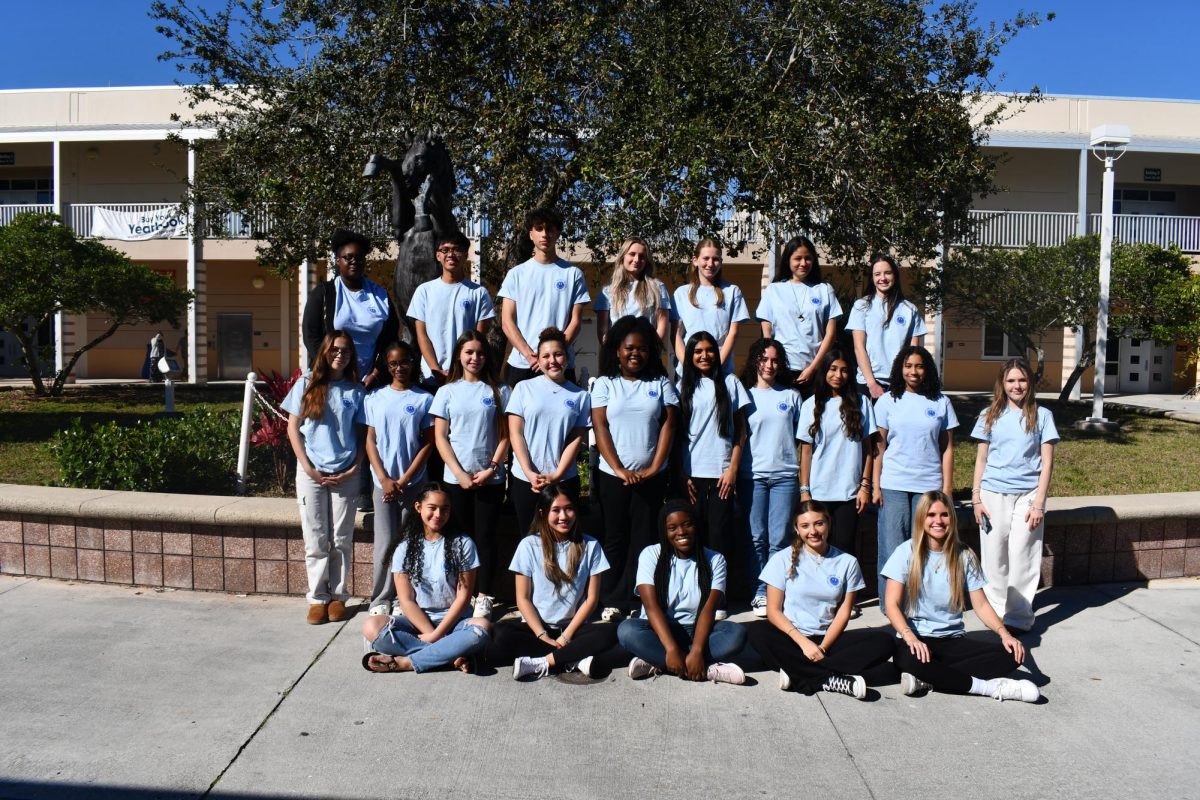Delaware makes history by electing first transgender senator
January 8, 2021
The LGBTQ+ community has been fighting for equality and acceptance for years in America. Facing both social and political discrimination, Sarah McBride has helped advance this battle by being the first transgender woman to be elected as the state senator of Delaware.
McBride was born and raised in Delaware and she has resided in the state her whole life. During her childhood, Sarah started to realize that the people around her were struggling with financial issues. This is what initially sparked her interest in government and made her feel like she needed to do something for her community.
“Throughout my life and during the course of this campaign, I’ve seen the challenges facing the First District,” said McBride on her campaign website. “The father who is worried about whether his family can afford treatment for his daughter’s struggle with addiction. The woman who is fearful that she will have to plunge herself into debt while undergoing chemotherapy. The single mom grappling with giving up a day’s wages in order to take her child to another in a long list of doctor’s appointments.”
As a representative of the LGBTQ+ community, she is very open about her transition. In her earlier years, she faced backlash for her decision. The hate got to a point where she even received threats to her life. For instance, in 2013 someone threatened to stab her, which she says stays with her to this day but makes her stronger and pushes her to work for the equality that she and her community deserves. Then in 2016 at a Democratic National Convention in Philadelphia, she openly announced that she was transgender.
“By seeing a transgender state senator, people learn that not only are transgender people normal, but they are capable, intelligent, and ambitious,” explained Dr. Alan Milich, former advisor to Central’s Gay Straight Alliance club. “And that being transgender, or LGBTQ+, is not the most important or defining thing about them. We should recognize that transgender people are people, with myriad facets and interests.”
Using her platform, McBride wants to help send the message to other kids that have questions about their identity and show that they have a voice in democratic America. To help this, in 2018 she wrote a book, “Tomorrow Will Be Different: Love, Loss, and the Fight for Trans Equality,” explaining the struggles of inequality in the LGBTQ+ community and her experience of being a caretaker of her late husband who was diagnosed with cancer.
“I am hopeful that there’s a young person desperately in need of that message, who, just before going to bed, looked online and saw this result,” said McBride in an interview with The New York Times. “‘For that person, they know that change is possible and things can get better.’”
Not only is McBride transgender, but she is also a woman. With a male majority in government, having more women representation in politics serves a big inspiration for many young girls today.
“We now have women in the White House to show equality,” said freshman Isabelle Young. “It would help the LGBTQ+ community if there is more representation.”
McBride is not the only representation for the LGBTQ+ community. There are many LGBTQ+ people who are in political positions and are making a change, like Democrat Jared Nieuwenhuis of South Dakota or Pete Buttigieg, a former Presidential candidate, naval intelligence officer, and current head of the Department of Transportation. Not only do they represent the LGBTQ+ community, but also their cultural community.
According to the LGBTQ Victory Institute’s “Out for American 2020 census of lesbian, gay, bisexual, transgender, and queer elected officials, there are approximately 843 LGBTQ elected officials in political positions in the United States. This equates to “a 21 percent increase since June 2019.” Granted 77 percent are white, but at least “10 percent Hispanic, 6 percent Black, 2 percent multiracial, 2 percent Asian or Pacific Islander and less than 1 percent each for indigenous and Middle Eastern.”
During the years 2018 to 2019, there was a flood of people in the LGBTQ+ community coming into the world of politics. This was referred to as the “rainbow wave”. People were running in every part of the office to show representation for their community and to push for change.
“Representation is such an important thing! For everyone, not just the LGBTQ+ community,” said Milich. “Representation and visibility help remove the marginalization and rejection that can lead to so many problems for young people trying to figure out where they fit in.”
The rainbow wave has been able to make a comeback in 2020 with many LGBTQ candidates running for political offices. In addition to Delaware, states like Georgia, Hawaii, and South Dakota are seeing more LGBTQ representation in government.
“More LGBTQ candidates ran for office in the United States in 2020 than ever before – at least 1,006,” noted the online magazine The Conversation. “That’s a 41 percent increase over the 2018 midterms. “In Hawaii, Adrian Tam – who upset a 14-year incumbent in the August Democratic primary for the state House of Representatives – defeated Republican Nicholas Ochs, making him Hawaii’s only openly LGBTQ elected official.”
Sarah McBride’s representation of the LGBTQ+ community is a big part of why she is in the position she is now, but she also has had plenty of big positions in politics. For example, she was the leading advocate for the state’s landmark non-discrimination legislation, spokesperson for the Human Rights Campaign, and also taught public policy to students at the University of Delaware’s Biden Institute.
“Sarah being the first LGBTQ+ state senator in Delaware makes others aware that they can do it too,” said junior Andrea Betancourt “This also makes her a role model to the transgender community who aspire to be like her.”
In the wake of Sarah McBride, other openly LGBTQ+ politicians have been breaking traditional roles. As of recently, there was a report that former presidential candidate, Pete Buttigieg, was nominated to be a part of President-elect Joe Biden’s cabinet. This makes him the first openly gay member of a Presidential cabinet.
According to USA Today, “Now, he’s making history again as the first openly gay man to be nominated to a Cabinet role, with President-elect Joe Biden tapping Buttigieg this week as his pick for the U.S. Transportation secretary.”
The more representatives we have, the more encouragement that the LGBTQ+ community can gain. It is evident that the government is becoming a place where people are not judged by their sexuality, but rather their commitment to improving their community.
“They [LGBTQ+ people] can see people like themselves living successful lives with careers and healthy relationships,” explained Milich. “People who are in the ‘standard’ categories never have to look for role models because they see their reflection in society every day. Cis Heterosexual people don’t have to prove that they have valuable attributes besides their gender identity.”
For more information please visit:



